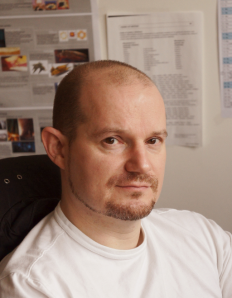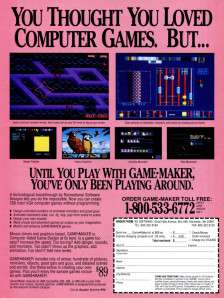
Interview – Counting the Minutes with Richard Ogden
 Richard Ogden is no stranger to the gaming industry. Currently working under his studio label Red Phantom Games, he’s had an excellent international release with his debut title, Minutes. Before founding his one-person studio near the end of 2012, Richard had a robust career spanning nearly two decades in the industry. Some of the more notable companies he was with are Sony Computer Entertainment, Codemasters, and Bigbig Studios (which brought us bestsellers such as Pursuit Force and Motorstorm: Arctic Edge).
Richard Ogden is no stranger to the gaming industry. Currently working under his studio label Red Phantom Games, he’s had an excellent international release with his debut title, Minutes. Before founding his one-person studio near the end of 2012, Richard had a robust career spanning nearly two decades in the industry. Some of the more notable companies he was with are Sony Computer Entertainment, Codemasters, and Bigbig Studios (which brought us bestsellers such as Pursuit Force and Motorstorm: Arctic Edge).
I was recently given the opportunity to speak with Richard about Minutes and his studio despite a busy schedule. Red Phantom is already in initial working stages for its follow-up effort while just having come off the PlayStation® 4 and PlayStation® Vita release of their minimalist, reaction-based puzzler.
Me: Tell me, Richard, what started you down the path to indie stardom.
Richard: My dad brought home a ZX81 when I was a kid.
Me: I was an Apple II Plus man myself.
Richard: . . . .
Me: Did you have aspirations of becoming a game designer?
Richard: I was at university when I realized that a career in game development was a viable choice. It was the adverts in the back of Edge magazine that did it.
Me: Having had the opportunity to work with some of the companies you have, or have helped to found, what brought you to create your indie studio?
Richard: Just seemed to occur at a natural point. Starting a new, one-man studio fits with that whole movement though really (I) think I’m in the scene as such.
Me: How has Red Phantom fared since its first release?
Richard: It’s the start of the journey, the first game in the bag. Some people are liking it and buying it so it’s a good first building block.
Me: Tell me a little bit about Minutes.
Richard: It’s an abstract action antidote to AAA games. If you’re bored of blowing things up (which, to be honest, I’d completely understand if you aren’t) then Minutes might be the game for you.
Me: Do you feel a certain amount of success has come along with the release of Minutes?
Richard: Minutes has been fairly well received critically so a little perhaps, but it’s just the start of the journey. The key for me is to get a few games out there and be successful on balance. If it doesn’t work then I’ll go get a job. I think indies now need to be in it for the long game if they want to make money (unless they stumble on a mega-hit of course).
We can’t all be successful but I’d hope that the good games float to the top irrespective of who makes them. However, it is a commercial endeavor and money or luck certainly play a part. Time will tell whether Red Phantom will work out for me. I’m just making games and trying to avoid having to work for someone else!
Me: What was the design process like with Minutes?
Richard: Minutes took about 18 months so that’s a fairly typical project length even though it was mainly just me working on it. I’m hoping the next game will be a bit quicker because I’ve built the engine now. I don’t think any developer ever finishes a game that they didn’t want to improve further. Part of the skill is knowing when to say “that’s enough”.
Me: How do you overcome things like creative block?
Richard: Eat cheese before going to sleep.
Me: . . . . And on that bombshell, goodnight!
Me: I don’t know if you’ve dealt with piracy personally, but do you have any words on the subject?
Richard: It happens. It’s always been there since the days of games on tapes. We’ve not solved it yet. As everything becomes more digital then perhaps there will be a more concerted effort to tackle it as it’s not just a games-related problem.
Me: You’ve been a part of studios of varying sizes. Has there been any noticeable differences in the production process, or team value?
Richard: All developers are on a scale anyway – from one-person devs to many-hundred person teams with studios across the globe. I’m not sure where you can draw a dividing line. In that sense we’re all just one big mush of game makers! Advances in the technology make things a bit easier but going from concept to a finished game involves much more than the tech.
Me: Does that essentially make it harder to go up against such a variance in companies?
Richard: There’s nothing wrong with a competitive market. It should make us all work harder on the games we make. Like anything else, the good ones will survive. I don’t think it matters how the game is made. These things all work in cycles don’t they. I guess the indie scene will ebb and flow naturally to some extent. But, it’s here now and I don’t think it’ll go away, but nor will it dominate.
I like the creative expression of being indie – R. Ogden
Me: What have you been up to since the release of Minutes?
Richard: I don’t have much spare time at the moment. When I can I’ll play guitar, read a bit, play some games or go out with friends. These days I’m putting a lot of time into Luftrausers.
Me: Are there any games you wished you had worked on?
Richard: There were at least a couple of designs that we had at Bigbig Studios that would’ve been great to see on the shelves (digital or otherwise). I can’t say what they were but all the IP is obviously owned by Sony now. Who knows if we’ll ever see one of these in some form.
Me: I’d like to tap your wealth of knowledge from years in the industry. Do you have any advice for all those youngsters out there playing on their gently used ZX81’s?
Richard: If you’re looking for a job in the industry as a programmer or artist then make sure you’ve got a demo or a portfolio. Game design jobs are hard to come by unless you can demonstrate raw, natural talent so go for a different role first. If you’re already making a game then get it finished and out there.
Me: Last question. Does this interview make my butt look big?
Richard: No, but it certainly contains the most questions of any interview I’ve ever done.
Me: Thanks again for your time, sir.
Richard: Thanks. Much appreciated.

